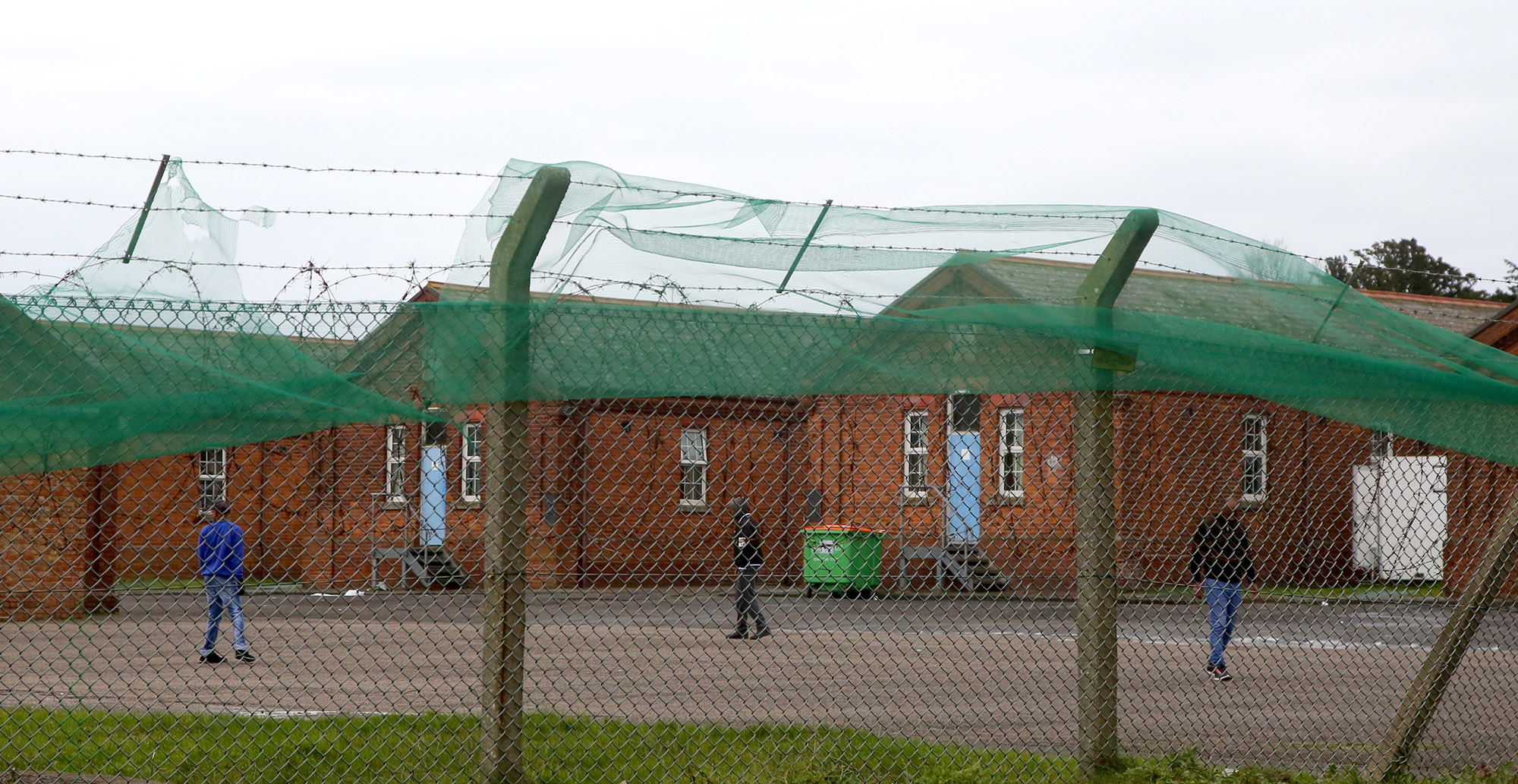Priti Patel Blames “Mingling” Asylum Seekers For Covid Outbreak At Napier Army Barracks
Priti Patel said the Covid outbreak at Napier barracks was because the asylum seekers housed there dod not follow the rules (PA)
3 min read
The Home Office has revealed that 178 asylum seekers caught coronavirus last month while being held at an army barracks in Kent in a dramatic Commons committee hearing this morning.
But after criticism that the dormitories, which sleep more than 20 people each, are not Covid-secure Priti Patel seemed to blame those being held there for the outbreak.
Appearing at an evidence session before the home affairs select committee this morning, the home secretary said “people do mingle”, and said she believed “it is a fact” people were not following the rules when it came to the positive cases reported at Napier Barracks.
Chair of the home affairs select committee, Labour’s Yvette Cooper said this was an “astonishing response” to the situation.
Cooper had asked Patel’s colleague Matthew Rycroft, permanent secretary at the home office, to reveal how many coronavirus cases there had been at the barracks, which has been housing asylum seekers since last September.
“So in total in January there were 178 positive tests, and 19 in February, leading to a total of 197 between the start of January and now,” Rycroft said.
Cooper appeared taken aback by the revelation. “Oh my god, you had 178 cases at a centre which had dormitory accommodation of over 20 people in those dormitories?," she replied.
“Well, that looks pretty clear evidence to me that those dormitories were not Covid-safe if you managed to generate within them 178 positive cases, presumably that would have affected staff who live in the local community as well.
“On what planet did you think in the middle of a Covid crisis it was safe or sensible to put over 20 people in a dormitory so they're all sleeping together in the same room with the same air overnight each night?”
But Rycroft claimed that guidance was being followed "at every stage".
"The guidance was to ensure that there was as much space as possible, certainly at least two metres between beds and and so on, and we followed that guide,” he continued.

Cooper hit back: “Okay, so that's all right then. There were two metres between beds that will presumably mean it's okay for people to sleep safely?
"Well that obviously wasn't sufficient when there were 178 cases.”
Patel echoed Rycroft in defending Napier Barracks, which she believed had followed Covid-19 guidance, and instead said she believed detainees mixing with one another had caused the outbreak.
"The permanent secretary is absolutely right in terms of following the advice from Public Health England, to mitigate the risks of contracting or spreading Covid," Patel cut in.
“But at the same time you will recognise that within contingency accommodation, initial accommodation for asylum seekers, people do mingle.
“People were also not following the rules, and that we also have to bear in mind that Covid being as contagious as it is spreads.”
Cooper did not appear swayed by the defence. “That is still a bit of an astonishing response," she adeed.
"What effectively you're saying is blaming those people for not following the rules when they were put in accommodation where they had to sleep over 28 people to a room.”
